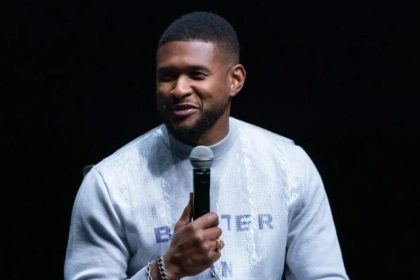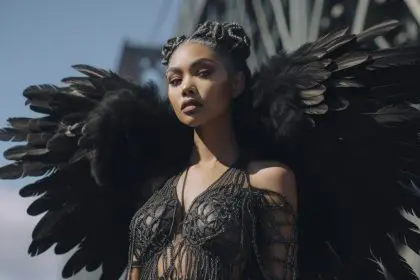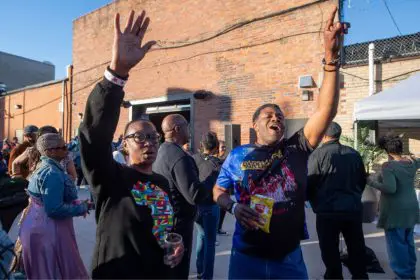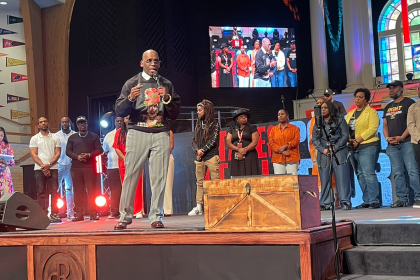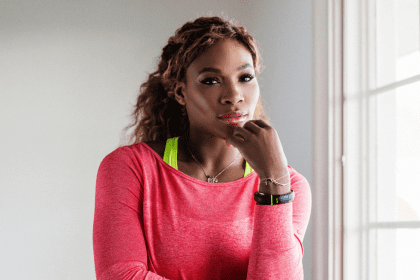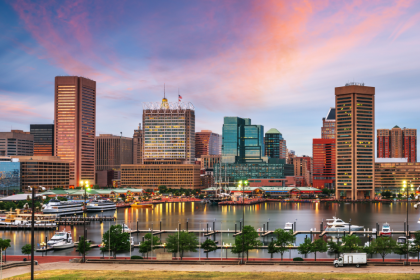Caitlyn Jenner won the Arthur Ashe Award for Courage at the 2015 ESPYs earlier this week, and the former Olympian spoke to the crowd and television viewing audience about learning to accept trans people and understanding the role that she can play in helping to further that cause. “As a group, as athletes, how you conduct your lives—what you say, what you do—is observed and absorbed and observed by millions of people, especially young people,” she said. “I know I’m clear with my responsibility going forward, to tell my story the right way for me. To keep learning, to do whatever I can to reshape the landscape of how trans issues are viewed, how trans people are treated. And then, more broadly, to promote a very simple idea: accepting people for who they are, accepting people’s differences.”
Critics have dismissed Jenner’s winning of the award as crass and exploitative; and many take exception to a trans woman being celebrated at all—whether it be with a courage award or on the cover of Vanity Fair. I’ve thrown myself into the middle of this ongoing dialogue because witnessing the contempt for the LGBT community has made me hyper-aware of the work that needs to be done. And I think more straight Black men need to commit themselves to that work. I’m not a scholar on this subject at all—but I wanted to share my thoughts on what has become an issue that I believe we have to address.
Caitlyn Jenner, the Supreme Court ruling for marriage equality—both were major news stories at the start of the summer. I watched as friends and family reacted with disgust and outrage over both. The idea that a trans woman would be celebrated by magazines and awards shows was “disgusting” and “shameful” to so many of my peers; the Supreme Court ruling represented a “sad day” for America according to the people I’d known most of my life. The hurt and anger I felt watching these responses led to me lashing out at people who I’d grown up with and who supported me. I hate that it happened. But maybe it was necessary.
Because I think it’s time for a change.
A lot has been said and written about homophobia and transphobia in the Black community. I have taken exception to the singling out of my people in this regard; I don’t believe that this is an issue that is unique to Black people. But I think we have to look at ourselves and do the work that’s necessary to address the hate—both blatant and benign—that we allow to thrive in our culture.
“This transition has been harder on me than anything I can imagine,” Jenner said during her acceptance speech. “And that’s the case for so many others besides me. For that reason alone, trans people deserve something vital. They deserve your respect.”
I don’t understand why that notion is so controversial.
Growing up, I knew lots of people who were selling drugs and involved in other illicit activities. When we interacted with each other, I gave them respect and they did the same for me. When I deal with homeless people, I show respect. Respect is something that people shouldn’t have to beg for. Unless you do something that I find detrimental, I have no problem showing you respect. And in the case of trans people, I think they need it more than most.
I don’t know how anyone could look at a person who’s transitioning and think there is anything “easy” about what they are going through. I have no idea what it must be like to be a little boy who experiences life as a girl or vice versa. But I know how we treated “sissies” growing up—and I wouldn’t call what those kids experienced “easy.” It was hard. It was hateful. And it was their daily lives.
As adults, we bully in different ways. We label these people “weirdos” and “freaks,” we deny them the right to be treated like everyone else because of our ignorance and fear. There’s no other reasoning, really—why should I care if a man wears a dress or if a woman dates a woman or if a person born physically male identifies as female? How does it affect me in any way? It doesn’t. But we’ve decided that social mores are so important that we must enslave ourselves to them. The people who live outside of this imaginary cultural box become the objects of scorn and derision. We make good people suffer because we don’t understand them. If the emergence of Laverne Cox and Caitlyn Jenner can help make the next generation less taken aback by trans people, then they are doing a positive thing for our community and country.
So why are we fighting so hard against it? Why do we want to preserve the fear, anger and discomfort? I’ve been discussing this for weeks now and I have yet to hear an argument that isn’t rooted in fear, ignorance and/or hypocrisy. And it’s framed in several different “go-to” points that those “I got no problem with gay folks, but…” people tend to lean on when discussing their point of view.
One of the biggest validations for subtle homophobia amongst my peers and colleagues has been “I’m sick of them comparing their struggle to ours.” The mainstream LGBT community has no right to co-opt black struggle in its effort to address the prejudices LGBT folks must overcome; but we can acknowledge that problem without using it to silence and dismiss the entirety of LGBT struggle. I’ve seen so many pieces and had so many conversations with individuals complaining about homophobia being compared to racism. We should be able to acknowledge that not all bigotry is equal; we should also be able to acknowledge that certain specifics can be comparable even if the two fights are not wholly identical. “I was born black and I can’t hide it when I leave my house every day.” Well, a person who’s born gay shouldn’t have to hide it when they leave the house–but those who do are reacting to a culture that despises who they are and persecutes them for it. The hate they face is real. They can be attacked, shunned or even killed just for being who they are–just like I could be. Whether or not you believe homosexuality is a choice is irrelevant—religion is a choice, you still shouldn’t be persecuted and marginalized for it. We can still call bigotry exactly what it is. And we can stop pretending that there aren’t Black LGBT people fighting on both fronts.
The idea that homosexual relationships aren’t “natural” is another bit of non-reasoning that has never made much sense to me. Is it because same-sex couples can’t traditionally make a baby? Not every romantic relationship is predicated on sex and not all sex is predicated on procreation. I’ve been in my fair share of relationships and I had no intention of making a baby in 95% of those relationships. I’d venture a guess that that is true for lots of Americans. A post-menopausal woman can’t have a baby—does that make any relationship with her “unnatural?” Reducing every sexual relationship to just the biological function of procreation is dumbed-down and dishonest: most of our relationships are driven by companionship. And consenting adults have the right to seek companionship wherever they desire. If a 19 year old stripper can marry an 86 year old oil tycoon she’s known for six weeks and that union is fully legitimate in the eyes of the state, isn’t it obscene that a lesbian couple that’s been together for 30 years had to fight for the same right?
The idea that the American family can only look like the Cleavers or the Huxtables isn’t just outdated—it’s a lie. The American family hasn’t been a monolith in generations—if it ever was to begin with. We have single-parent families, blended families, extended families and foster families. And productive, healthy, well-adjusted people have been born of all of these various family types. Family and marriage means different things to different people—we have to make allowances for that. We do it for everything else. If you can’t force your religion on others, why should you be able to force your definition of marriage? Besides–if we cared that much about the “sanctity” of marriage, we’d protest quickie wedding chapels and sleazy divorce lawyers. Not every heterosexual marriage is a holy institution. I don’t see any great honor in a marriage of convenience or obligation just because it happened to occur between two straight people.
There is also the pervasive “I don’t want my kids to see that” attitude that drives so much homophobia in our culture. But what exactly are you afraid of your kids seeing? And what do you plan to do if a gay couple moves into your neighborhood or if you see a gay couple at a restaurant? I don’t know exactly when I was first made aware of LGBT people, but I knew who Boy George was as far back as elementary school. Knowing and understanding Boy George never made me want to be Boy George—because I’m straight. Your kids knowing and understanding LGBT people won’t “turn them into” anything except empathetic and open people. For the kids who are LGBT, seeing these individuals being treated like people helps them to understand that the world doesn’t hate them. Again—I don’t understand why that is a bad thing. Unless you just don’t care about those kids.
Five trans Black women were murdered in the first five weeks of this year. There was little-to-no outrage from the Black community about these killings—which suggests that these are black lives that do not matter to us. Their fight isn’t our fight? We’ve decided that we would rather not acknowledge that these people are a part of our community; we prefer them on the margins. We just don’t care about them. And we despise them for asking us to.
That is the underlying message in so much of the rhetoric that is spouted from Black pulpits and Facebook posts; that these people are somehow damaged and damaging and we should ignore that they exist. We don’t mind gay people as long as they never put us in a position to face our denial regarding them. You don’t mind your gay co-worker or choir director until you see him out holding hands with his boyfriend. “I can accept people as long as they don’t remind me that they are different from me” is the most cowardly form of bigotry and it encourages delusional behavior. We criticize “down low brothas” but we endorse the culture that encourages gay people to hide and lie. How can you criticize gay men who pretend to be straight and believe that pretending to be straight is the approach that’s best for American society? It’s a sad hypocrisy.
That denial is what is tearing apart families and wounding the Black community. It’s this strange belief that LGBT folks don’t really exist—they’re something drummed up by the media to make homosexuality look “cool.” I grew up with kids and adults that I knew or assumed were gay—and I’m willing to bet most Americans did. I remember one of my best friends mercilessly bullying a boy in my high school because we all assumed he was gay. He was very effeminate and at every opportunity, my friend would throw things at him or shove him around—just because of our assumptions about his sexuality. Why is that acceptable behavior? Why is it “normal” for kids to terrorize those we have decided are different? Isn’t that a bad thing? We are supposed to be teaching young people how to be respectful and compassionate towards others; but we encourage them to look at LGBT people differently. We want our kids to laugh and point. We want our kids to be uncomfortable around them because we’re uncomfortable. And no one ever taught us anything different. No one taught us to see these people as people. Putting LGBT celebrities on magazine covers isn’t treating them differently than straight celebrities–it’s treating them the same as straight celebrities. And we applaud it because it helps the entire LGBT community–the people who aren’t stars but have to face ignorance and hate daily. It reminds America that these people are us, too.
We watch as Black activists who identify as LGBT lead movements like #BlackLivesMatter. We support LGBT creatives/scholars from Alice Walker to James Baldwin. But we do it conditionally. We do it while turning a “blind eye” to who they are. We don’t care if you’re openly a criminal. We don’t care if you’re openly ignorant. We don’t care if you’re openly a misogynist. But we struggle with you being openly gay—as if you have no right to expect us to treat you with dignity and respect. That can’t continue. We can’t move forward like this. We’re all in this together. It’s time to act like it.
Either all of us are free or ain’t none of us free.


